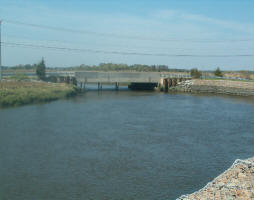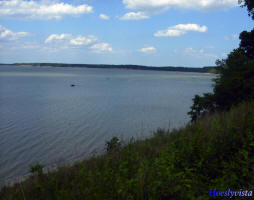 Water Authority: Israel is rapidly losing its water sources
Water Authority: Israel is rapidly losing its water sources
Israel will soon be unable to use a considerable part
of its natural water sources, the Water Authority warns, because of the
deteriorating quality of ground-water reserves, exacerbated by reduced
rainfall due to climate change.
Most of the water in the Coast Aquifer, one of Israel's two main
ground-water sources, is below the standard for potable water,
according to a recent report by the Water Authority's Hydraulic
Service. The report analyzed the water's quality on the basis of
recommendations for drinking water made by a team of experts headed by
Professor Avner Adin.
Most of the committee's recommendations, which have not been
anchored in legislation yet, are more strict than the former standards.
The Hydrological Service recommends reducing the
water drilling from the West Mountain Aquifer (the other major
freshwater source, which also provides water for the Palestinians) by
one tenth and to be prepared for increased water drilling on the
Palestinian side.
It also recommends to stop pumping more water than the rainwater
entering the ground water reserve in the Coast Aquifer, which provides
almost one third of Israel's water consumption. Instead it urges
creating alternative water sources, such as desalination.
Water tests indicate that 16 percent of the water
pumped two years ago from the Coast Aquifer two years ago were inferior
in quality with excessive chloride or nitrate - pollutants caused by
sewage and fertilizers. Even in places where 95 percent of the water
came from the aquifer, tests showed that it was polluted and salted,
which means that these problems are expected to get worse.
One reason for the Coast Aquifer's salification is the excessive
water drilling, which lowers the water's level and leads to the
penetration of sea water into the drinking water. The Hydraulic Service
report said that sea water has penetrated one kilometer and two
kilometers inland in several places, and has reached the area where
most of the drilling for aquifer water takes place.
Unlike the Coast Aquifer, the Mountain Aquifer's water quality is
still good. However, the Hydraulic Service says that the water in
Qalqilyah and Tul Karm is still being polluted. The Service recommends
speeding up the treatment of sewage from West Bank Palestinian
communities and Israeli settlements in the West Bank.
| Contact information |
Zafrir Rinat, Haaretz Correspondent
(email: zafrirr@haaretz.co.il) |
|---|---|
| News type | Inbrief |
| File link |
http://www.haaretz.com/hasen/spages/952155.html |
| Source of information | Zafrir Rinat, Haaretz Correspondent |
| Keyword(s) | desalination |
| Subject(s) | DRINKING WATER , DRINKING WATER AND SANITATION : COMMON PROCESSES OF PURIFICATION AND TREATMENT , ENERGY , FINANCE-ECONOMY , HYDRAULICS - HYDROLOGY , INFRASTRUCTURES , NATURAL MEDIUM , POLICY-WATER POLICY AND WATER MANAGEMENT , PREVENTION AND NUISANCES POLLUTION , RISKS AND CLIMATOLOGY , WATER DEMAND |
| Relation | http://www.semide.net/countries/fol749974/country725681 |
| Geographical coverage | Israel, Palestine |
| News date | 16/02/2009 |
| Working language(s) | ENGLISH |
 you are not logged in
you are not logged in





